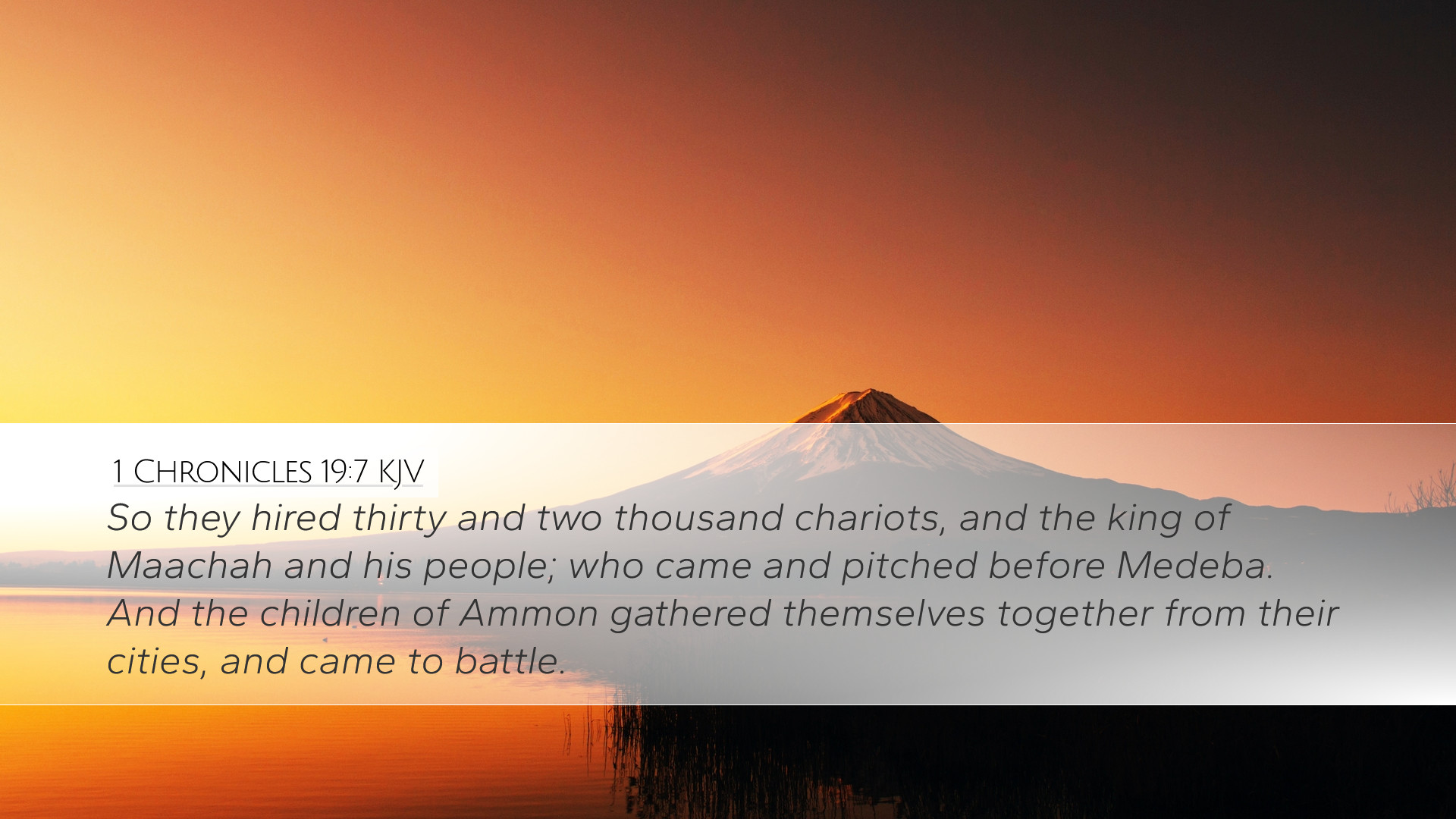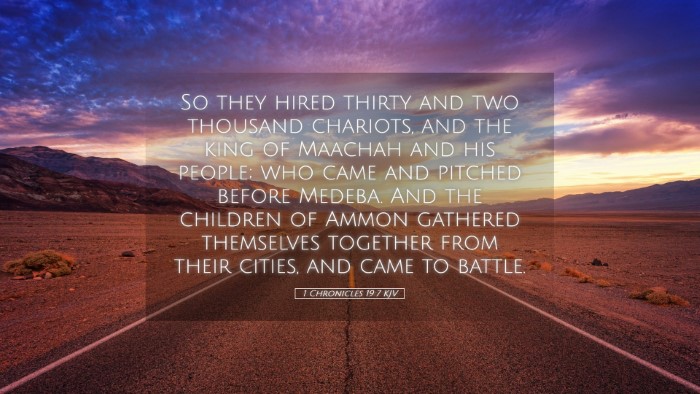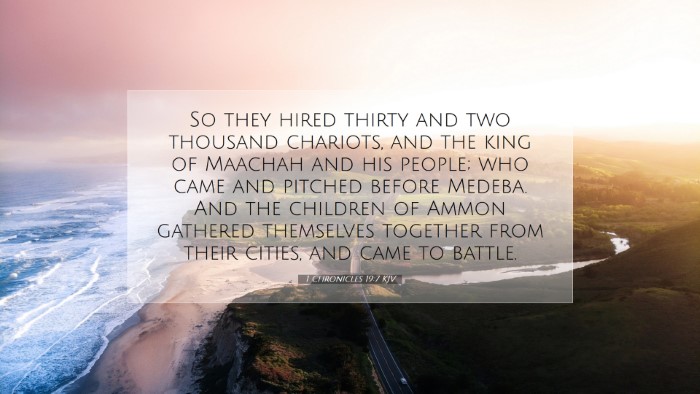Commentary on 1 Chronicles 19:7
Verse Reference: 1 Chronicles 19:7 - "So they hired for themselves thirty-one thousand chariots, and the king of Maacah and his people, who came and encamped before Medeba." (ESV)
Introduction
The context of 1 Chronicles 19 reflects the ongoing tensions and conflicts during David's reign as king of Israel. This verse, particularly, highlights the military alliances formed against Israel and demonstrates the geopolitical intricacies of the time. When studying this verse, it is essential to grasp both its historical setting and theological implications.
Contextual Analysis
This chapter recounts the events following the death of Nahash, the king of the Ammonites, and David's efforts to show kindness to the Ammonite people. His actions were met with suspicion and hostility, leading to preparations for war against David’s kingdom. The verse points to the significant military strength of the Ammonites, emphasizing their alliances with neighboring kingdoms.
Interpretations from Public Domain Commentaries
Matthew Henry's Commentary
Matthew Henry notes that this passage illustrates God’s providence in using even the intentions of man for His purposes. David's initial act of kindness towards the Ammonites resulted in hostility and a coalition against him. Henry emphasizes that the Ammonites “hired” to fortify their armies with chariots, symbolizing both their desperation and deliberate aggression towards Israel.
Albert Barnes' Notes on the Bible
Albert Barnes highlights the significance of the number 31,000 chariots, indicating the formidable military might that the Ammonites assembled. This was a demonstration of their serious intent to confront King David and the Israelites. Barnes elaborates on how the Ammonites, realizing their impending defeat, sought assistance in numbers and equipment to bolster their forces.
Adam Clarke's Commentary
Adam Clarke's insights pivot around the economic implications of the alliances formed against Israel. Clarke explains that the recruitment of this many chariots required substantial resources, which indicates a level of organization and strategic planning by the Ammonites. The verse captures the dynamics of ancient warfare, where chariotry played a critical role in determining outcomes. Clarke also touches on the futility of opposing God’s anointed, emphasizing that human strength, no matter how vast, is ineffective against divine purpose.
Theological Implications
This verse invites deeper reflection on the nature of alliances and the struggles believers face in their spiritual journey. The coalition against David serves as a reminder of the trials that come from both external threats and internal doubts.
1. Trust in Divine Providence: The ongoing theme in the lives of the patriarchs, prophets, and kings showcases God’s sovereignty amid chaos. Despite the overwhelming odds faced by David, God's faithfulness becomes a source of strength.
2. The Nature of True Conflict: The conflict wasn’t merely political but spiritual. The opposition against David can be seen as a manifestation of the greater struggle between good and evil. As ministers and scholars delve into the text, it is essential to recognize the spiritual warfare that accompanies any effort to fulfill God’s calling.
Practical Applications
- Preparation for Trials: Just as David prepared for battle, believers must equip themselves spiritually to face opposition.
- Understanding Alliances: The nature of warfare—be it political or spiritual—often requires discerning who we partner with and the implications of those alliances.
- Faith Over Fear: In situations where opposition arises, faith in God's plan can provide clarity and resolve.
Conclusion
1 Chronicles 19:7, while recounting a historical military event, serves as a multifaceted lesson for modern believers. By weaving together insights from Matthew Henry, Albert Barnes, and Adam Clarke, we learn the importance of understanding the context, implications, and applications found within Scripture. Pastors, students, theologians, and scholars are challenged to look beyond the historical narrative and draw lessons that speak to the heart of our ongoing relationship with God amidst conflict.


